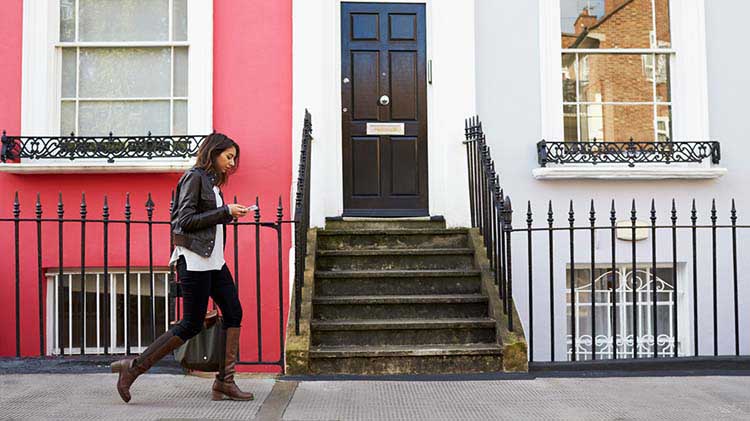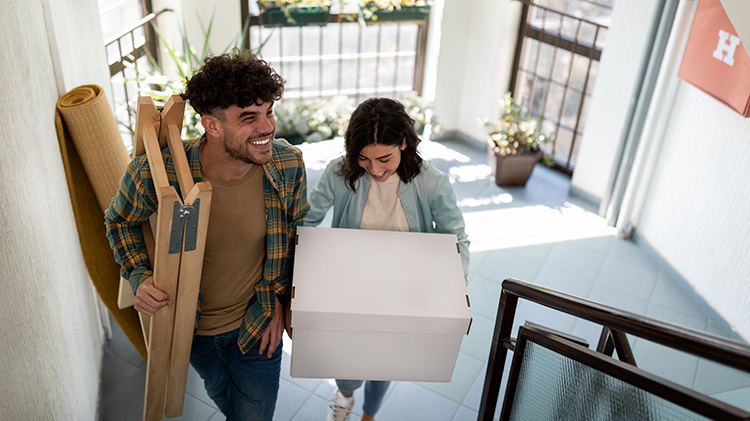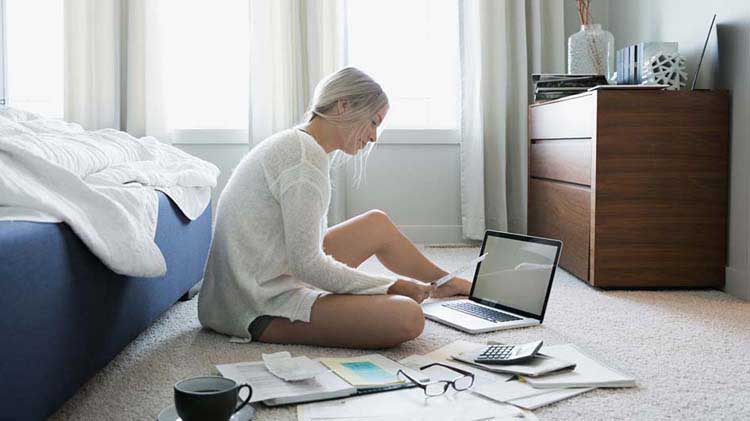Tips for renting an apartment or a house
Consider these renting tips to help you with your next rental property.
Determine your rental budget
Before you start searching for a rental property, it's important to establish a budget to help you narrow down your options and avoid places that are beyond your financial reach.
If you're currently renting, consider if you want to pay more for a better place, pay less to help save money or keep your rent roughly the same. Adjust your budget accordingly. If this is your first rental, experts recommend spending no more than 30% of your gross monthly income on rent.
Remember to factor in additional costs such as your security deposit, utilities, parking fees and pet fees when calculating your rental budget.
What are you looking for in a rental?
Once you have an idea of what you can afford, think about what your “needs” and “wants” are for the new place. To help give you an idea of how to prioritize, here’s what to look for in a rental:
“Needs” may include:
- A nearby school for your children
- A reliable internet connection, if you plan to work remotely
- A floor plan that can be made accessible for wheelchair users
- Available parking spots
- The ability to have pets live with you
“Wants” may include:
- A closer commute to work
- A pool or gym
- Walk-in closets
- A nice view
If you need to compromise to help stay within budget, review your “wants” list to see what you might be able to live without.
Research and tour properties
When you're touring potential properties, keep your budget, needs and wants in mind. Take notes and pictures of each location to help you make a more informed decision later.
Some questions to ask the property manager or person giving the tour might include:
- Are utilities included? If not, what is the approximate monthly cost?
- Can the home or apartment be sublet?
- Is anything broken and who is responsible for fixing it?
- What type of decorating is allowed? For example, can you hang curtains or pictures on the wall without voiding your security deposit?
- Are there surrounding buildings or businesses that might present a problem like bug infestations?
- Is there a superintendent or formal process for submitting work requests?
- Can I see the specific unit I’d be renting?
- Are pets allowed?
Asking about any common problems before you sign a lease might help prevent potential problems after you move into your new home or apartment. Naturally, there may be more questions you have on your own, but hopefully this will give you a good starting point.
Things to know before renting an apartment or house
Rental application requirements
Applying for a rental property requires preparation. You will likely need to provide proof of identity, paystubs, a credit report, bank statements or other similar forms to the rental property staff or through an online application. They may also run a background check and charge an application fee, which in some cases might be applied towards your deposit if you are approved.
Review the lease agreement thoroughly
Before signing your lease, carefully review it to ensure that it aligns with what you've been told and doesn't contain any potential issues. Pay close attention to these key areas:
- Rent — your lease should explain acceptable payment types and late-fee terms.
- Deposits — your lease should specify the dollar amount, use and requirements for return of your deposit.
- Tenants/occupancy limits — the lease should state the maximum number of occupants allowed. Be aware that allowing additional occupants beyond the limit or failing to list all tenants could breach the lease agreement.
- Pets — the lease will typically specify whether pets are allowed or not.
- Repairs/maintenance — your lease should outline which repairs and maintenance you’re responsible for, how to notify the landlord about repairs and reasonable timeframes for repairs to be completed.
- Terms — a lease should explain termination dates, which are typically a year or month-to-month.
- Utilities — the lease should specify which utilities are included and which are not. It may also address whether utility rate increases can be passed on to you.
- Landlord right of entry — when the landlord can legally enter your rental and whether you have the right to be present should be clearly specified in your rental agreement.
To help further protect yourself, check that the terms of security deposit return, move-out cleaning expectations and sublease information are explicitly written into the lease agreement.
Watch out for rental scams
Be cautious if a property manager avoids your questions or pressures you to sign a lease quickly. Rental scams are real, so be wary of suspiciously low prices, no in-person tours or no application or background check requirements.
Ask to see the property in person and meet the property manager before signing anything or sending money. Online property reviews can be helpful but watch out for fake reviews.
Consider getting renters insurance
When looking into whether or not you want to get renters insurance, think about the value of your belongings and the potential risks at your new place. Landlord's insurance typically only covers the structure and fixtures of the apartment, not your personal possessions.
Renters insurance offers customizable coverage to help protect your personal belongings from unexpected events like fires or theft.
Get a renters insurance quote
Want to protect your stuff?
Conduct a move-in inspection
On move-in day, carefully inspect the property and document the condition of anything that could affect the security deposit such as:
- Door security — check that the locks and hinges are secure.
- Appliances — test all appliances to check they are in working condition.
- Walls and ceilings — look for cracks, bubbling paint, mold, stains or discoloration.
- Bathroom — inspect the bathtub for cracks, stains or discoloration.
Take pictures or video of any issues and talk to your property manager about them right away.
Confirm any final steps before moving in
At this stage, you may be well on your way to living in your new rental property. There shouldn’t be too much left to do besides small things like getting your mail key or parking passes and notifying the property if you are bringing in professionals to help with your move.
If you haven't already, consider getting renters insurance. You can get a renters insurance quote now, or give us a few details and a State Farm® agent will reach out to you.




